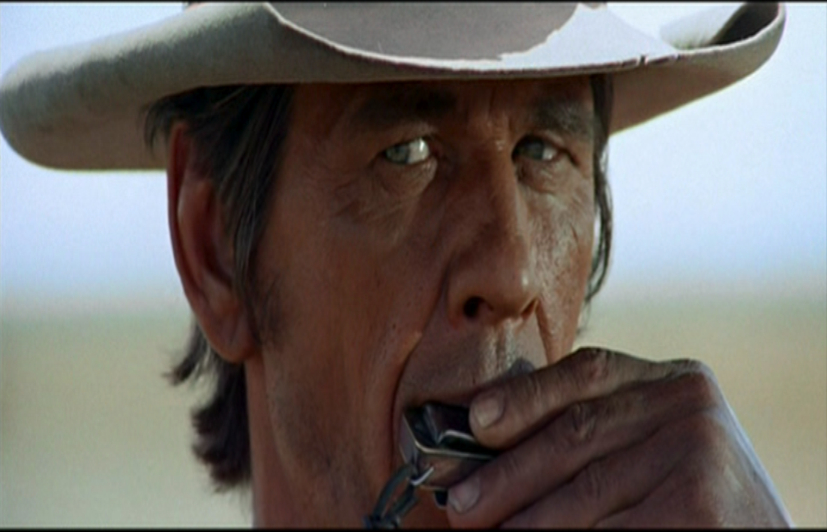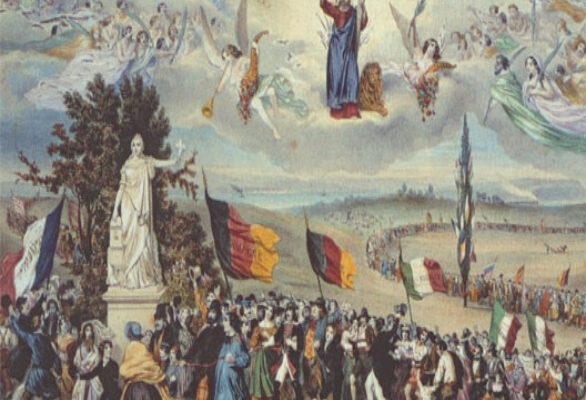Though nations are real and organic, the development of nationalism, that is the fostering of nationalistic feelings and convincing a nation that it is deserving of self-determination, is a process of human work. It is important to remember that many nations never know independence, or only know it briefly. For the majority of human history, especially since the Persians conquered Babylon in 539 BC, huge, multi-ethnic empires have been common. They were not, to be perfectly clear, “multi-cultural” in the manner of the present mess of the United States. In these empires, there was an obvious and dominate ethnic group and the polity would not change its fundamental identity to appease minorities, but they were not “nation-states” in the modern sense of the word.
Eventually, this paradigm began to break down. Nations ruled by other nations, sometimes for centuries, began to understand themselves as distinct from their rulers and, as such, deserved to govern themselves. Understanding how that process begins is paramount to any nationalist project. Before any revolt can be planned, the groundwork must be laid, and that preparation comes in the formation of an identity. But where this project begins is critical to understanding how to encourage a people to begin believing themselves as distinct and worthy of sovereignty.
Ultimately, this process goes back to acts that are, on the surface, apolitical – when a people began to take an active interest in their culture, such as clothing, preferring to dress in traditional attire, especially on important days. This can also take the form of celebrating important dates in a nation’s history, such as the birth of a great king before the current conquest. Perhaps the most important of these acts is when a nation takes interest in its own literature.
The printing press is one of the most important inventions in human history and for a multitude of reasons, including some that help promote nationalism. In the days before the printing press, books were prohibitively expensive, far out of the reach of the common man and were only written for scholars. Because of this, books were not written in the vernacular, the common speech, but in a scholarly language, which for Medieval Europe meant Latin. But the printing press changed that by making books cheaper, books could now be read by more and, as such, a market for books written in the everyday language appeared. Now, Germans could read books in German, Italians in Italian, French in French, and so forth. By being able to read books in their own language, national identity was able to form. As literacy spread, more and more nations began to realize their nationhood. Thus, a Croat began to not see himself as a subject of the Habsburg emperor, but rather as a Croat, a distinct nation under Habsburg rule. As his identity grew, so did his love for it and a desire to make Croatia free.
Southern Nationalists must learn from this strategy and work to increase the Southern passion for the literature of Dixie. Go to your local schoolboard and suggest they begin to add great Southern literary titans to the curriculum. Yes, keeping degenerate books promoting transgenderism and other debased behavior away from Southern children is important, but we also must provide positive examples, too. And this strategy need not apply only to “literature” narrowly defined, but it can include Southern music as well. So, call your local classic rock station and request they play Lynyrd Skynyrd, Molly Hatchet, and The Allman Brothers Band. Call your local country station and request they play Johnny Cash, Waylon Jennings, and Hank Williams (all three will do). All of these artists are proudly Southern, and they will help form a distinct Southern identity among Southerners – we have our own music, instantly recognizable as “Southern music.” Distinct music is made by a unique people and in order to maintain that distinction we must be free. It is a story that has played out in dozens of other cases, and it must play out in Dixie.
I know this from personal experience. When I was much younger and really getting into music on my own, my local classic rock station used to dedicate every Saturday night to Southern Rock. I discovered a lot of great music that way, bands that almost never get any airtime now. But more importantly in the long run, it helped me understand why Dixie was not merely a part of the United States, but its own nation under a brutal occupation. Because we are distinct, we are able to produce something called Southern Rock that has a discernible sound. Southern Rock exists in a way that “Midwestern Rock” cannot, and I have never heard of a radio station in Iowa dedicating an entire night in a week to rock music made by Midwesterners. Midwesterners are Americans, Southerners are not. Playing “Sweet Home Alabama” may not look like a revolutionary act, but it does help get the ball rolling by sparking interest in art made by Southerners wearing their Southerness on their sleeves. The importance of bands like Lynyrd Skynyrd and shows like The Dukes of Hazzard cannot be overstated in how they helped preserve Southern identity in the days after the end of home rule. We must capture that spirit again.
Long before the monumental acts that free a nation are undertaken, dozens of smaller measures happen first, ones that lay the groundwork for national identity to flourish. Perhaps no one understood this better that Padraig Pearse. As the leader of the Easter Rising, he committed one of the biggest efforts in the Irish drive to break the British yoke. For that, he is remembered as one of the great heroes of Ireland. But even had he died before the Eater Rising, he would still deserve a place of honor among the greats of Ireland because of his tireless work to promote the Irish language and literature of his people.
The foundations of a Free Dixie lie in a love for the art and literature made by Southerners, art that celebrates us as a distinct people and knows we are not like the rest of the United States. By spreading the love of that art and literature to Southerners, the cracks in the Yankee Empire will form. And those cracks will grow until the time is right to finally break the yoke of Yankee rule.







One comment
Comments are closed.